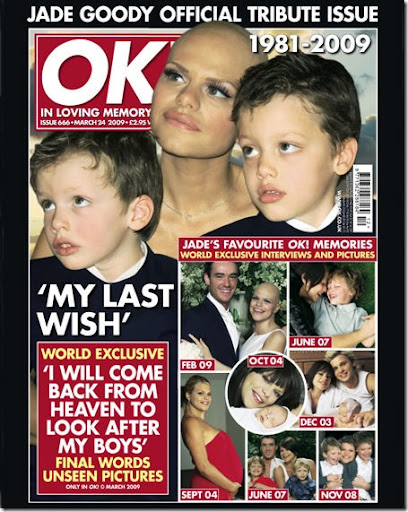Elton does Orwell? Sorry, that’s just wrong
Elton John’s first professional gig was with a blues band that covered Memphis Slim and Muddy Waters. But he quit that outfit in 1967, and pianistically speaking, it has been downhill all the way ever since.
Now we read that the third most successful recording artist of all time has teamed up with the guy who wrote Billy Elliot to work on a musical version of Animal Farm. Whatever next? The Saturdays do Grundrisse? Atlas Shrugged, soundtrack courtesy of Meatloaf?
The news comes just weeks after George Galloway – a man whose gifts with song were long unsuspected by many – unveiled his plans for a similar treatment of the life of noted lesbian songstress Dusty Springfield.
Some may detect a certain incongruity here, at least in so far as it must be presumed that Dusty would have been immune to the cigar smoking charms of the former Respect MP, although that dimension may simply add to the charm of the project.
Cutting spending: the BBC warning
The BBC’s proposal to cut 6Music and the Asian Network is, I fear, a portent of coming cuts in government spending – because it shows that when a top-down organization makes cuts, it does so on the basis of power, not efficiency.
Put it this way. If the BBC were to restructure itself according to public service broadcasting principles it would abolish BBC3 (£115m a year for a pile of crap), privatize Radio 1 and possibly Radio 2 , and stop paying huge salaries for “talent” – though the fact that Anne Robinson gets £3m a year suggests this word is used very elastically.
So, why does it leave all these alone and target instead two radio stations which seem to fulfil the public service remit by offering things which the commercial sector probably wouldn’t? continue reading… »
What’s wrong with a slimmer BBC?
Calls in favour of reducing the cost of running the BBC by 25% haven’t gone down well. Facebook campaigns are being set up and accusations are being flung that the cuts are “politically motivated” to butter up the Tories.
In short, the sceptics argue that weakening the BBC will be a gift to its private competitors and a blow to public services on both radio and television.
I am totally in favour of the BBC. I think a competitive state-owned TV is sacrosanct and whoever thinks the BBC should be dismantled and/or privatised is purely driven by rampant ideology.
However, the current cost of a TV licence is £142.50. In 2000, it was just £104. In ten years, an increase of around 36% – without anyone asking licence payers if they agreed with the way the corporation expanded.
continue reading… »
Poles Apart: coming near you
contribution by Daniel Hoffman-Gill
Last year, sick and tired of the endless dirge of bigotry, lies and anti-Polish sentiment coming from the right-wing press, me and my mate Mark decided to go to Poland. We wanted to get a job; to put our money where our mouth is and garner a small taste of what it means to be an immigrant. We wanted to single-handedly reverse the Eastern European immigration trend.
So we got our CVs and covering letters translated (badly as it turned out) into Polish, put on our best interview clobber and made our way to Poland in a Vauxhall Astra.
We spent over two weeks as immigrants in Warsaw, ate a lot of lard and pigs feet and attempted to get any job we could, whether it be as a lift operator, a porn film star or a guttering and flues salesperson.
It was an amazing adventure that taught us much on the realities of life as an immigrant.
continue reading… »
SuperFreakonomics – How to lose friends and irritate people
If there really is no such thing as bad publicity then Steven Levitt and Stephen Dubner will surely be laughing all the way to the bank as sales of their new book ‘SuperFreakonomics’, the follow-up to their 2005 bestseller ‘Freakonomics: A Rogue Economist Explores the Hidden Side of Everything‘, head through the ceiling.
In a little under a fortnight since the book’s release, Levitt and Dubner have already walked straight into one major shitstorm by, seemingly tweaking the noses of a prominent environmental blogger and a well-known environmental advocacy group with their chapter on climate change.
And if Anna North’s article at Jezebel.com is anything to go by, their chapter on the economics of prostitution looks set to have a few feminists chewing the furniture as well, in very short order.
Controversy sells, even if its misplaced, which seems to at least partially the case here as neither chapter looks to be anything like as contentious as some of the book’s more vocal critics are trying to make out.
So what exactly, have Levitt and Dubner done to piss these people off.
Climate Change
Taking the climate change chapter first [pdf no longer available], and with the caveat that I’ve not yet had time to exhaustively examine all the claimed examples of misrepresentation and/or technical errors cited by its critics, what Levitt and Dubner have done is poke a stick at what is by far the largest and most intractable problem facing climate scientists working on global warming; their inability to make anything that remotely approaches a reliable prediction of its likely impact on the global climate. continue reading… »
Does the Arts Council need trimming too?
contribution by pagar
Unity wrote an article recently questioning whether, as we approach an era of fiscal restraint and pressure on public spending, it was appropriate to give public money to a rich organisation like the Catholic Church. And this got me thinking.
Are there other areas where we are currently spending public money that it would be appropriate to axe before we have to get to the nurses and teachers?
I came up with quite a few but perhaps the most obvious is funding for the Arts Council.
In September 2008, a £150,000 managed funds grant enabled 40 artists and scientists to set sail on Cape Farewell’s 12-day Disko Bay expedition. The trip aimed to put artistic responses to climate change in the spotlight, and the crew featured 10 musicians (including KT Tunstall, Martha Wainwright, Jarvis Cocker and Ryuichi Sakamoto), two architects, two oceanographers, a ceramicist and a comedian. This was the organisation’s seventh expedition.
How did Nazi admirer become a national treasure?
I enjoyed reading the Alan Clark diaries back in the 1990s. They merit their classic status, in capturing a political age, while the dramatic descriptions of the plotting in the final days of the Thatcher premiership mean they are a historical document which will endure.
As Robert Harris writes in his Sunday Times review, “the universal acclaim for the high literary quality of his diaries, transformed Clark’s reputation. From sinister, adulterous crypto-fascist he morphed into lovable, roguish national treasure”.
And yet Ion Trewin’s authorised biography may be becoming the occasion for a reversal in reputations, with several reviewers focusing less on the personal infidelities for which Clark became renowned as on the extent of his fascist sympathies.
Dominic Lawson led the way, putting Clark bang to rights in a devastating Independent column last week. But this is also a theme followed up by Edwina Currie in The Times, and in Robert Harris’ Sunday Times review too.
This is the Alan Clark conundrum: how were literary talent, and a reputation as an entertaining and incorrigible rogue, enough to make a national treasure of a man who made little effort to hide his pro-fascist views? After all, Clark gained Ministerial Office, and was even able to return triumphantly to the House of Commons in 1997 before his death.
continue reading… »
The Treehouse Gallery

There’s a great little project happening in Regents Park at the moment. The Treehouse Gallery is an ever growing collective of artists, designers, musicians and educators, who have constructed their own public space in which to hold exhibitions and events.
I’ve been following the development of the events schedule for a few weeks now, which is steadily filling up with workshops and other events, but I don’t see much in the way of debates programmed. Surely some LibCon readers and writers could get together to argue about something? Localism is a live debate at the moment, and would seem a perfect topic to discuss in a community-made space. CSJ? Fabians? Demos? SMF?
#MichaelJacksonRIP vs #IranElection
Evenin’ all. I wanted to make a quick point about certain global news stories, and the relative amount of news coverage given to each.
Its fashionable, yet incredibly easy to complain that the Michael Jackson death has crowded out news of other more pressing matters. Shawn Micallef sounded an early word of warning about this attitude:
There is no need to compare MJ & Iran – completely dif, just intersect on same medium, not a social/moral lesson to be learned.
Then (again via Twitter, though the link is now lost in the maelstrom) I came across this MJ/Election mash-up, and it occurred to me that coverage (be it on Twitter, blogs or the international MSM) is not a zero-sum game, and that coverage of one piece of news could promote awareness of another.
continue reading… »
Condom ‘optional’?
There’s much I don’t understand about the porn industry: the poor writing, the implausible plotlines, the baffling belief that a man reaching orgasm near a woman’s face is somehow erotic. But of all these many mysteries, nothing causes quite as much amazement as discovering that the industry is averse to contraception.
It turns out that California is suffering from something of a porn panic after an actress recently tested positive for HIV. People who have worked with the woman are being told to lay off the heavy thrusting for a while and the state’s health & safety folks are busy trying to discover the source & stop it spreading. This might not be the easiest thing to do, however, for it turns out that safe sex isn’t sexy:
After an HIV outbreak in 2004 spread panic through the industry and briefly shut down production at several studios, many producers began making condoms a requirement. But they said both actors and audiences quickly rebelled.
Parliamentary reform: What would Tom Paine do?
by Edward Vallance, author
To be a successful candidate, he must be destitute of the qualities that constitute a just legislator, and being thus disciplined to corruption by the mode of entering into Parliament, it is not to be expected that the representative should be better than the man.
– Thomas Paine, The Rights of Man Part the Second (1792)
The bicentenary of the death, on June 8 1809, of Thomas Paine, England’s most famous republican polemicist, falls at a time when our political leaders, and much of the media, tell us that Parliament is on the brink of a revolution. However, viewed in the context of historic radical movements, the ‘big change’ heralded by David Cameron really amounts to small potatoes.
The furore over MPs’ expenses has thrown up a number of proposals for political reform. From Gordon Brown’s call for an independent audit unit, to Alan Johnson’s proposal for a referendum on proportional representation, to Cameron’s and Clegg’s arguments for fixed-term parliaments, our politicians are suddenly all engaged in a game of ‘more radical than thou’.
continue reading… »
Mummy, what’s a Sex Pistol?
I don’t know a lot about art, but I know what I like. You can’t help but think that’s exactly what four supermarkets thought when they saw the cover art for the Manic Street Preachers’ new album, Journal for Plague Lovers, above. 15 years on from the release of their opus, The Holy Bible, the vast majority of the lyrics for which were written by Richey Edwards, who went missing less than a year later, the band have finally had the courage to return to the remaining lyrics which he left behind for them.

Appropriately, they decided upon using a painting by the artist Jenny Saville, who also provided a confrontational cover for the THB, a triptych of an obese woman in white underwear. The art for JFPL is undoubtedly striking; it’s also quite clearly one of the best album covers in years.
continue reading… »
Review: Jessica Valenti of Feministing’s new books
Jessica Valenti, editor of the popular blog Feministing, in an effort to make us all feel like we should get up earlier, has not one but two new books out. Both were released in the UK this week on May 7th.
‘He’s a Stud, She’s a Slut (And 49 Other Double Standards Every Woman Should Know)’ looks like one of those rather meaningless “gift books” that you buy for friends when you can’t think of anything else they’d like or you’ve only just remembered that it’s birthday drinks you’re heading to when you get to the train station with two minutes to spare.
But we know Valenti better than to expect anything so simple. Inside, chopped into sassy bite-sized chunks Valenti presents an overwhelmingly compelling case for the existence of a double standard for women in every branch of society.
continue reading… »
Jade Goody, Russell Brand & the media
 Some say blog posts complaining about Jade Goody coverage apparently vindicate and perpetuate the rather nauseating circus. I think such logic is bollocks, of course, because the mainstream media – TV, radio, newspapers, blogs belonging to all the aforementioned and others – would have merrily continued to spout crap regardless of what a few poxy political bloggers decided to say.
Some say blog posts complaining about Jade Goody coverage apparently vindicate and perpetuate the rather nauseating circus. I think such logic is bollocks, of course, because the mainstream media – TV, radio, newspapers, blogs belonging to all the aforementioned and others – would have merrily continued to spout crap regardless of what a few poxy political bloggers decided to say.
Why bother writing about it then? These are good questions, and the answer is that not five minutes ago, I spotted a ridiculous article on the BBC website titled, Star dubs Jade ‘Primark Princess’, and then made the mistake of reading it. Thankfully we don’t allow firearms in this country or I reckon I’d feel compelled to hunt down Russell Brand and kill him, earning myself a British Comedy Award for services rendered.
continue reading… »
Tech politics: libertarians and the Library
 A year ago, I wrote a piece here about the great art of the Gothic and Renaissance periods, and how we owe its existence to the Dead Hand of the (Tuscan) State. But where should we look for actions of slightly more modern government working to enrich our lives? Certainly not in the unending flow of nutty, illiberal laws; nor in the insidious creep of compliance culture (subject of a memorable Stephen Fry podcast). So, here’s an idea: look to the British Library.
A year ago, I wrote a piece here about the great art of the Gothic and Renaissance periods, and how we owe its existence to the Dead Hand of the (Tuscan) State. But where should we look for actions of slightly more modern government working to enrich our lives? Certainly not in the unending flow of nutty, illiberal laws; nor in the insidious creep of compliance culture (subject of a memorable Stephen Fry podcast). So, here’s an idea: look to the British Library.
More specifically, their Turning the Pages project, 10 years in the developing, that put our national library in the very first rank of learning innovation worldwide. (See the video.) The project’s achievement has been to digitize 15 (so far) of the Library’s most valuable manuscripts, and deliver them inside an interactive online environment that re-creates the experience of handling them in the raw.
continue reading… »
Standing on the shoulders of giants
It is a time of year to reflect, to think upon what has come to pass, to learn from the past and thank those that brought us to where we are today. Today, especially, is an exceptional day for these endeavours, being as it is the birthday of one of the greatest and most influential men to walk those green and pleasant lands.
His works, agitation and beliefs revolutionised the world, and there isn’t a day that goes by in which we are not all grateful for his work and influence.
continue reading… »
Soap misrepresents Australian Law
I have a guilty pleasure- an addiction to Australian soaps. I know that this blog is usually much too serious a place to discuss such meaningless subjects, but this is a very serious post, I promise.
On Thursday’s episode of one of my favourite Australian soaps, Out of The Blue, screened on BBC2, a happily pregnant couple at what they thought was a routine scan were told that their baby had such a serious genetic abnormality that there was no choice but to terminate the pregnancy. My instant reaction was a cry of “Surely that isn’t legal!”
Personally, I am strongly against any abortion. However, being disabled, I am particularly against the abortion of any pregnancy that, if continued, would lead to the birth of a disabled child. continue reading… »
Burnham on Basic Principles
Culture Secretary Andy Burnham calls for regulation of the Internet to protect the “vulnerable, the poor, and the weak.” From the title of the article, “In a Lawless zone, we must protect the vulnerable” one would think he is talking about paedophiles in chat-rooms, or the 180% rise in phishing, but in fact he is talking about copyright theft.
It is also contentious that the poor are being disadvantaged by the ‘lawless’ internet – One great advantage of the medium is that it reduces the financial barriers of entry into any given business. Putting online regulation in place will surely restore those barriers. Indeed, the proposals to introduce some kind of licence fee to download music looks like a revenue generator for record companies, rather than a measure to help young and creative people who are just starting out, and giving away their music free on MySpace.
But for entirely different reasons, it was the following quote hat caught my eye:
Nothing can be accepted as inevitable. Though technology moves quickly, we can’t abandon basic principles that have stood society in good stead for centuries.
Wasn’t this the precise argument against 42 days detention!?
Casting the Net and bringing in LJ-shaped Fishies
Aaron is leeeeeaaaaving onna Jet Plane this morning, so I’m afraid you’re stuck with me. Tips to the usual address if’n you’m got any, and away we go:
Anna Jane Clare meant to post about Henry James, but ended up devoting most of her post to how the feral underclass is created (NSFW warning: may contain swearing).
Lynne Featherstone has been on t’wireless.
Love and Garbage has less a post and more a treatise bemoaning the MSM’s failure to examine Cameron, especially his speeches to the CBI.
Nicholas Whyte has decided who he’s going to support in the race for Lib Dem party president, and reveals that it won’t be the same person he voted for last time. Despite my detesting the slogan, I’m 4 Ros too (see sidebar). Huzzah for the Blogging Baroness!
Matt Wardman has a challenge for Unity and other bloggers who like to dig for obscure things. His post comparing webstats for newspaper websites and blogs is worth looking at too.
Lizbee has discovered an early Fandom Wank and relates a Tom Baker anecdote. I link to these for those of you who still labour under the delusion that Doctor Who fans, like bloggers, are (and always have been) male.
And finally, those philistines of you who still don’t read Livejournal blogs? Have a look at Livejournal Aqua. The post titles float past as they are posted, hover over them and you get an excerpt; click and the post will open in a new tab (assuming that you’re using Firefox like all sensible persons)
Can the British left learn from Americans?
 Imagine a left-of-centre political party without much electoral support, chided for not having enough bold ideas, facing a grumbling bunch of institutional backers that accuse it of betraying its ideological roots. Sound like New Labour? You may not be surprised to hear the same being said of the Democratic Party in the United States.
Imagine a left-of-centre political party without much electoral support, chided for not having enough bold ideas, facing a grumbling bunch of institutional backers that accuse it of betraying its ideological roots. Sound like New Labour? You may not be surprised to hear the same being said of the Democratic Party in the United States.
This is the picture painted by New York Times journalist Matt Bai in The Argument. Away from the day-to-day concerns of most Democrat politicians and voters, Bai delves into three tightly-knit and politically-charged worlds seeking to influence the Party and its agenda: billionaire donors, radical bloggers and activist groups such as MoveOn.
continue reading… »
You can read articles through the front page, via Twitter or rss feeds.
» In defence of Young Tories
» Cameron’s cuts will fail because he sees the UK like a company
» 1%: the real extent of benefit fraud
» Huppert’s right – MPs do need a crash course in science.
» Why won’t ministers follow through with promises of cutting their cars?
» How Labour MPs keep aping Tories on welfare reform
» Blood diamonds are a girl’s best friend
» The Australian elections and the muzzled dog
» How right-wing think-tanks laid the foundation for the Coalition’s agenda
» Domestic violence ‘orders’ were deferred for the sake of £700K
» The Green party needs a big debate about its direction
|
33 Comments 152 Comments 35 Comments 10 Comments 34 Comments 19 Comments 22 Comments 26 Comments 11 Comments 7 Comments |
LATEST COMMENTS » Hmm, a buttplug for Bob B is a perfectly liberal measure as based on the precautionary principle. IT'S FOR OUR OWN SAFETY DONCHAKNOW! posted on Why I changed my mind over the Burkha debate » SciFiBoy posted on Falling polls force Govt into Labour attack ad » Richard W posted on 1%: the real extent of benefit fraud » FEP posted on Why won't ministers follow through with promises of cutting their cars? » John Ringer posted on Leaked memo: Gove bans civil servants from Labour phrases at DfE » Mr S. Pill posted on No, David Cameron is not middle class » Get Over It posted on 1%: the real extent of benefit fraud » Get Over It posted on 1%: the real extent of benefit fraud » Get Over It posted on No, David Cameron is not middle class » Short-termist cuts to new play areas will be disappointing for families across the country, says Ed Balls « Ed Balls – Labour MP Blog posted on Leaked memo: Gove bans civil servants from Labour phrases at DfE » Dan McCurry posted on Gove axes hundreds of community playgrounds » Mr S. Pill posted on No, David Cameron is not middle class » Bob B posted on No, David Cameron is not middle class » Sunny Hundal posted on Leaked memo: Gove bans civil servants from Labour phrases at DfE » Bob B posted on In defence of Young Tories |















